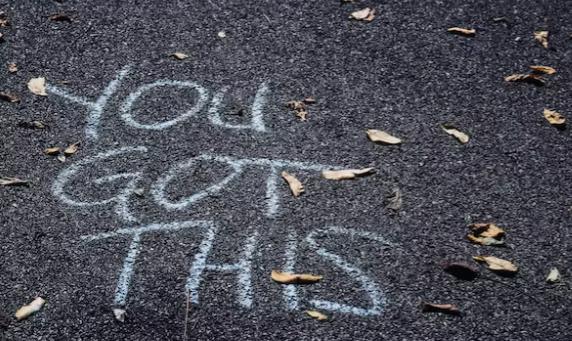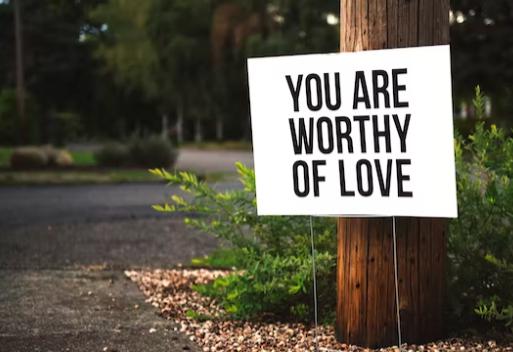How can I improve my Confidence in Dating?
Learn how to improve your confidence in dating as you use them in your life.

Selfpause Affirmation App
Download the app to get 1,000’s of affirmation meditations and everything you need to write, record and listen to your own.
Dating may be nerve-wracking, especially for those who lack confidence. Regarding meeting new people and putting themselves out there, many individuals suffer with self-doubt, fear of rejection, and anxiety. But, increasing your dating confidence is not impossible. You can increase your self-esteem, attract more possible mates, and experience a more satisfying dating life with the proper mindset, skills, and practice. In this article, we’ll discuss several suggestions and tactics for boosting your dating confidence.
Enhance Your Self-Esteem.

Working on one’s self-esteem is the first step toward gaining dating confidence. If your self-esteem is poor, you will struggle to feel good about yourself in any setting, including dating. Consequently, it is essential to address any negative self-beliefs, thoughts, or feelings and to focus on constructing a good self-image.
Start by recognizing your positive attributes and strengths. Create a list of your positive qualities, including your personality, abilities, accomplishments, and values. Regularly remind yourself of these things, and focus on growing your self-esteem from the inside out.
It is also essential to maintain your physical and emotional well. Regularly engage in physical activity, consume nutritious foods, obtain sufficient rest, and practice self-care. Avoid those that pull you down or make you feel insecure. Surround yourself with positive and supporting individuals.
Create a Development Mentality

A growth mindset is the concept that one’s talents, abilities, and personality can be developed and improved over time. It is the opposite of a fixed mindset, which holds that some features are innate and unchangeable.
A growth mentality can assist you in approaching dating with a pleasant and receptive attitude. Instead of viewing rejection and failure as a reflection on your value, you might view them as learning opportunities. This approach can also assist you in taking risks, attempting new things, and leaving your comfort zone.
To cultivate a development mentality, one must question negative self-talk and limiting beliefs. Replace “I’m not good enough” and “I’ll never find someone” with more positive and realistic statements, such as “I’m a work in progress” and “I’m capable of learning and improving.” Concentrate on your efforts and development, as opposed to the outcome.
Engage in constructive self-talk

Positive self-talk is a vital strategy for boosting dating confidence. It involves the use of supportive, empowering, and reassuring words and phrases to increase self-esteem and decrease worry and self-doubt.
Identify your negative self-talk tendencies before practicing positive self-talk. See when you are self-critiquing or self-doubting, then counter such ideas with positive affirmations. Replace thoughts such as “I am not attractive enough for this person” with “I am a unique and valued individual with much to contribute”
You can also utilize visualization techniques to see yourself in dating settings with confidence, success, and happiness. Imagine yourself on a fantastic date, making a connection with someone, or receiving a compliment. Positive self-talk and imagery will become more natural and automatic the more you practice them.
Recognize and Accept Rejection

Rejection is an unavoidable and typical aspect of dating. Everyone is rejected at some point, even the most self-assured and gorgeous individuals. Unfortunately, many individuals are so afraid of rejection that they avoid taking risks and putting themselves out there.
Learning to accept rejection as a normal and important aspect of dating will help you develop resilience and self-assurance. Instead than viewing rejection as a reflection of your value or attractiveness, view it as evidence that you’re taking risks and putting yourself out there.
Reframing rejection as an educational opportunity is one approach to accept it. After a failed date or conversation, consider what you may have done differently, what you learned about yourself, and how you can improve for the future. You can turn a negative experience into a positive one and utilize it to improve your dating skills by doing so.
Also, it is essential to realize that rejection is not a personal attack. Individuals have their own tastes, desires, and motives for choosing or rejecting a certain individual. Don’t take it too personally, and don’t let it deter you from pursuing your dating objectives.
Exercise Aggression and Boundaries
In dating and relationships, assertiveness and limits are necessary abilities. Assertiveness entails articulating your needs, desires, and emotions with clarity and assurance, without being aggressive or passive. Boundaries are the limitations you make for yourself and others in order to safeguard your emotional and physical well-being and uphold your beliefs and priorities.
In dating situations, practicing assertiveness and boundaries can help you feel more confident and valued. It can also prevent you from settling for less than you deserve or surrendering your principles or limits for the approval or attention of others.
To develop assertiveness and limits in dating, you must first establish your needs and principles. What do you seek in a romantic partner? What are your non-negotiables or deal-breakers? Finally, properly convey your requirements and boundaries to your dates or possible relationships.
For instance, if you’re not comfortable with physical closeness early in a relationship, you should explain this and ensure that it is respected. If someone is not meeting your emotional or communication requirements, assertively communicate this and seek a solution that works for both parties.
Concentrate on Relationship and Compatibility

In order to increase your dating confidence, you must adjust your thinking from seeking validation or approval to seeking connection and compatibility. Focus on finding someone who shares your beliefs, interests, and objectives and with whom you can have a genuine and gratifying connection, rather than trying to impress or please everyone you date.
This adjustment in perspective might help you feel less apprehensive and more secure in dating, as you are no longer attempting to meet someone else’s standards or expectations. Also, it can prevent you from settling for someone who does not share your beliefs or make you truly happy.
To focus on connection and compatibility, take the time to learn more about your dates. Ask relevant questions, express your own thoughts and emotions, and pay attention to how you feel around them. Check for same interests, attitudes, and lifestyles, as well as a comparable outlook on the future.
Conclusion
Developing your dating confidence needs self-reflection, practice, and a positive frame of mind. By working on your self-esteem, developing a growth mindset, practicing positive self-talk, embracing rejection, practicing assertiveness and boundaries, and focusing on connection and compatibility, you can develop the self-assurance and resiliency necessary to navigate the dating world with ease and enjoyment. Remember that dating is a learning experience, and every connection can teach you something about yourself and the type of relationship you seek. Have an open mind, be yourself, and enjoy the journey.
